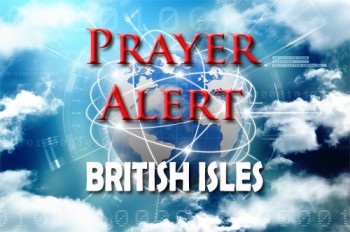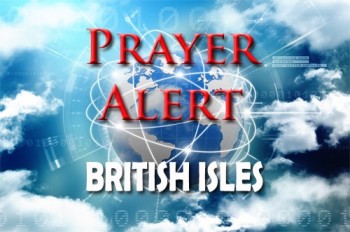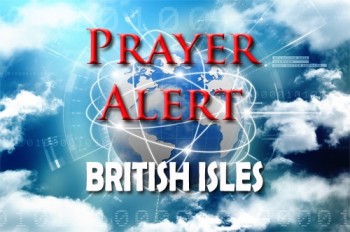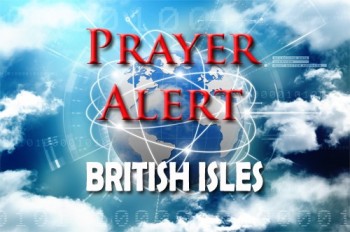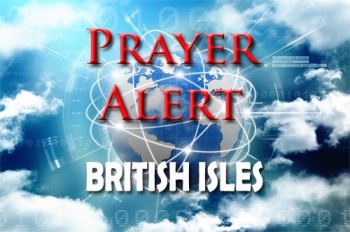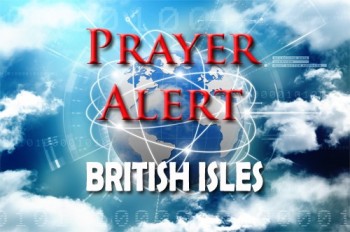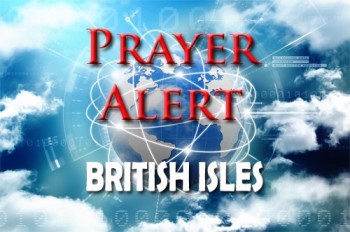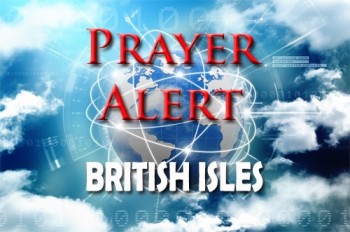Displaying items by tag: NHS
NI Nightingale hospital expanded
Belfast’s Nightingale hospital will be expanded to increase the number of intensive care beds from 24 to 32. Currently 20 Covid-19 patients are receiving intensive care at the facility and four beds are available. The Nightingale will deal with patient surges due to rising numbers of Covid-19 cases in the coming weeks. There are 126 nurses providing round-the-clock one-to-one nursing cover for all 24 beds. The BBC also revealed plans to increase the number of ward beds from 21 to 36. All six NI main hospitals are operating at full capacity or beyond. There is an expected peak during the last two weeks of January.
Vaccination programme
On 8 December a mass Covid-19 vaccination programme began, starting with the elderly, health workers, and carers. The next day, after two NHS workers suffered allergic reactions to the vaccine, a warning was issued that such people should not be given it. Both women have a significant history of allergic reactions and need to carry an adrenaline auto-injector with them. There are still many questions that the public have over the vaccine’s safety: see Many are asking, ‘How can we be sure the vaccine is safe with such a short testing period?’ Pray for the WHO, scientists, and experts on human medicine to be given enough media coverage to answer all fears and questions clearly, so that the anti-vax misinformation in social media is silenced. See also
Making churches vaccination centres
The Church of England says it is admirable that many churches want to be vaccination centres, but they need to think about the practical implications, such as potentially leaving the church unable to hold services for up to a year. With the Pfizer / BioNtech vaccine being rolled out already and the prospect of two more vaccines on the way, venues across the country will need to be temporarily converted into vaccination centres in order to inoculate the population. The Royal College of Nursing has said, ‘Buildings with the capacity for large-scale vaccination options such as sports and leisure centres, community centres and religious venues may offer the potential to facilitate a mass throughput of people.’ Vaccination centres are also decided by local NHS trusts with local authorities, GPs, and pharmacies. The Church of England has published guidance about what they need to consider before offering: see
Over 75% of NHS midwives say staffing levels unsafe
A survey by the Royal College of Midwives revealed midwifery services are at breaking point in a profession where staff are working in fear. Over three-quarters of midwives think staffing levels in their NHS trust or board are unsafe. 42% reported shifts were understaffed and a third said there were ‘very significant gaps’ in most shifts. Midwives have been pushed to the edge by the failure of successive governments to invest in maternity services. Maternity staff are exhausted and demoralised; some are looking for the door. For the safety of every pregnant woman and every baby, this cannot be allowed to continue. Pray for this survey to be drawn to the attention of politicians. May there be enough investment in the NHS to provide safe, high-quality care in all branches of medicine. Pray for an end to the exodus of trained professionals whose morale is at rock bottom.
Lockdown will worsen mental health challenges
42 mental health experts have warned that lockdown will trigger a spike in suicide, self-harm, alcoholism and domestic abuse. In an open letter to the Government, they said the longer the lockdown lasts, the worse this 'collateral damage' will be. Consultant psychologist Dr Keri Nixon, an expert in trauma and domestic abuse, said, 'The lockdown is supposed to prevent deaths from Covid. But it's also certain to cause further deaths, not only from other physical diseases like cancer but from poor mental health which has been worsening this year. It will also lead to intense loneliness and depression in older people: these are killer conditions, closely linked to poor physical health. Ironically, this will make them all the more vulnerable to Covid.' The letter calls for replacing lockdowns with 'focused protection' of the vulnerable. Each of the letter's claims are backed by peer-reviewed academic studies.
Hospitals - second wave rolling in
The British Association of Critical Care Nurses said that we may have the beds, equipment and Nightingale spaces, but we have limited staff numbers. It won't take much this winter to reach a crisis point (current new transmissions are 96,000 daily).The second wave is placing an ever greater toll on UK hospitals. There are currently over 1,000 Covid admissions daily. Hospitals have started cancelling routine treatments, or announcing some treatments will have to stop. Although admissions are up, they’re nowhere near the numbers last spring. At one point then, 3,000+ patients were admitted daily. Instead, we see a gradual rise. Winter usually has 1,000 people admitted daily for respiratory problems. It is predicted the 2021 flu season will be mild, but we do not know if it will add to the coronavirus workload. Medical staff all share the feeling of exhaustion that has been heightened by long-standing concerns about staff shortages, and deep resentment about pay and conditions. See
New Covid-19 restrictions likely next week
Covid restrictions will be tightened with pub and restaurant closures in some areas. Overnight stays away from home in these areas could also be banned. A three-tier lockdown system is being planned. The NHS is worried about the disease’s spread and patients losing out on other treatments. No 11 is fearful about the impact on the economy. It’s No 10's job to worry about all of it, then reach a conclusion. Pray for the leaders and their advisors as they face a complicated equation. The Academy of Medical Colleges called on people to abide ‘strictly’ to coronavirus measures to prevent NHS services from becoming overwhelmed. It says we could soon be back to where we were in April if we are not all extremely careful. Meanwhile the MP Margaret Ferrier caught coronavirus but then attended church. See. Northern England currently has growing numbers of hospital admissions and more elderly in intensive care.
Abuse at NHS health unit
Ten workers at a hospital in Essex were suspended and two members of staff referred to the police amid claims that vulnerable patients with autism or learning difficulties were ‘dragged, slapped and kicked’. CCTV footage at the hospital, showing episodes of physical and emotional abuse, was passed to police after an unannounced visit by the Care Quality Commission (CQC) inspection unit. At the time, the ten-bed hospital held eight adult female patients, who experienced ‘abusive, disrespectful behaviour' by staff. Staff failed to use ‘appropriate restraint techniques’, became angry with residents, and dragged them across the floor. Suspended workers included some who witnessed incidents but failed to report them. Pray for greater scrutiny of safeguarding procedures in care homes; for godly principles to generate the visible and hidden wellbeing of vulnerable communities; for complaints made by residents to be investigated and acted upon if necessary; and for God’s comfort for the abused.
Rationing Covid testing
Rationing plans for coronavirus tests in England will prioritise NHS patients, staff, care homes and key workers - especially teachers - as the Government grapples with a surge in demand. The tiered system for booking tests would follow a similar pattern to testing at the beginning of the pandemic, with NHS patients with respiratory conditions at the top of the list and healthcare staff and those who work in education also prioritised. The new strategy will be published in the week beginning 21 September, detailing efforts for more laboratory capacity, faster testing results, and the prioritisation list for testing. There is concern that making it more difficult to book a test could ultimately hinder efforts to contain the virus. Strict enforcement could quickly become unnecessary if more laboratory capacity were opened. Boris Johnson conceded that there was not enough testing capacity and that many are ‘deeply frustrated’.
90,000 DIY lockdown abortions?
In March 2020, just before the national lockdown began, a notice appeared on the government website seeming to allow women to conduct their own medical abortions at home. Outcry followed and the notice was removed, the government website claiming that it was ‘published in error’. Website visitors were reassured that there would ‘be no changes to abortion regulations’. The Secretary of State for Health and Social Care assured the House of Commons, ‘There are no proposals to change the abortion rules due to Covid-19.’ However, now 3 months later the government said, ‘DIY abortions could be a permanent fixture in the UK’. The media reported that up to 90,000 women have used the DIY service since it was introduced in March. The government will release official statistics next week. If 90,000 abortions took place it would make DIY abortion the biggest silent killer of lockdown, more than twice as many fatalities as Covid-19. See also
